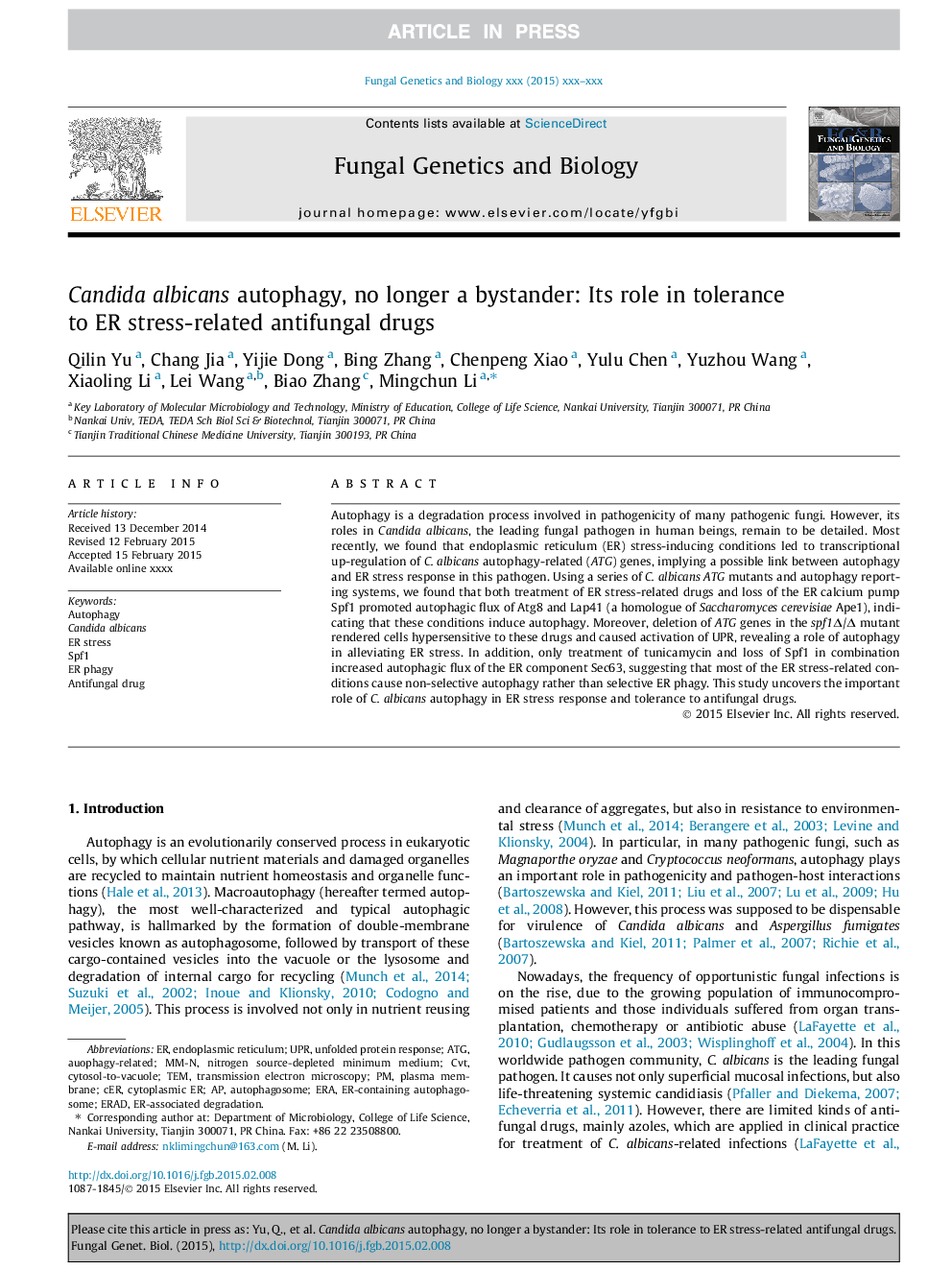| Article ID | Journal | Published Year | Pages | File Type |
|---|---|---|---|---|
| 8470698 | Fungal Genetics and Biology | 2015 | 12 Pages |
Abstract
Autophagy is a degradation process involved in pathogenicity of many pathogenic fungi. However, its roles in Candida albicans, the leading fungal pathogen in human beings, remain to be detailed. Most recently, we found that endoplasmic reticulum (ER) stress-inducing conditions led to transcriptional up-regulation of C. albicans autophagy-related (ATG) genes, implying a possible link between autophagy and ER stress response in this pathogen. Using a series of C. albicans ATG mutants and autophagy reporting systems, we found that both treatment of ER stress-related drugs and loss of the ER calcium pump Spf1 promoted autophagic flux of Atg8 and Lap41 (a homologue of Saccharomyces cerevisiae Ape1), indicating that these conditions induce autophagy. Moreover, deletion of ATG genes in the spf1Î/Î mutant rendered cells hypersensitive to these drugs and caused activation of UPR, revealing a role of autophagy in alleviating ER stress. In addition, only treatment of tunicamycin and loss of Spf1 in combination increased autophagic flux of the ER component Sec63, suggesting that most of the ER stress-related conditions cause non-selective autophagy rather than selective ER phagy. This study uncovers the important role of C. albicans autophagy in ER stress response and tolerance to antifungal drugs.
Keywords
Related Topics
Life Sciences
Biochemistry, Genetics and Molecular Biology
Cell Biology
Authors
Qilin Yu, Chang Jia, Yijie Dong, Bing Zhang, Chenpeng Xiao, Yulu Chen, Yuzhou Wang, Xiaoling Li, Lei Wang, Biao Zhang, Mingchun Li,
